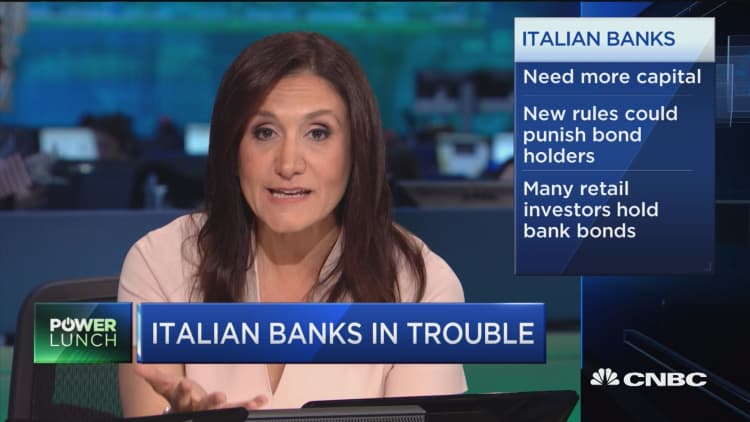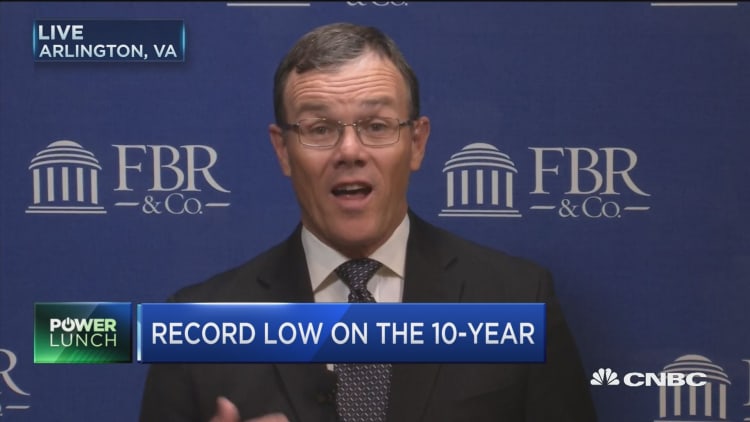
The problems facing the Italian banks could cause Italy to become the next country to try to leave the European Union, strategist Brian Jacobsen said Tuesday.
That's because many Italian banks may need to raise more capital and European Union banking regulations won't allow recapitalization.
And that could hit the wallets of Italian retail investors, many of whom hold bank bonds, he told CNBC's "Power Lunch."
"The bigger issue here [is] the fact that you have so many pensioners and depositors who have purchased some of the slightly higher-yielding securities issued by Italian banks, who by EU rules would effectively need to be wiped out before there could be a recapitalization," said Jacobsen, chief portfolio strategist at Wells Fargo Funds.
The Financial Times reported Sunday that Italy might "defy the EU (European Union) and unilaterally pump billions of euros into its troubled banking system if it comes under severe systemic distress … despite warnings from Brussels and Berlin over the need to respect rules that make creditors rather than taxpayers fund bank rescues."
A spokesman for Italy's Prime Minister Matteo Renzi denied the report, Reuters reported.
Jacobsen said the situation has become a major political issue.
"People could be talking about Italeave instead of Brexit if they don't actually come to an agreement about how to capitalize these [banks] in a way in which Matteo Renzi is laying out and which is also palatable to the Germans," Jacobsen said.
The Italian bank index is down about 56 percent year to date, and was hit particularly hard after the U.K. voted in late June to leave the European Union.

Meanwhile, U.S. Treasurys have become the big safety trade as investors flee Europe, FBR Capital Markets managing director Paul Miller told "Power Lunch."
The 10-year yield has fallen to its lowest levels since 1953.
While it has come down before and bounced back up, there are ramifications if it doesn't move back higher, Miller noted.
"If the 10-year continues to stay down, you will see earnings revisions as it is very difficult to make money in a low-, flat-rate yield-curve environment," he said.
— CNBC's Holly Ellyatt and Jackie O'Sullivan contributed to this report.


